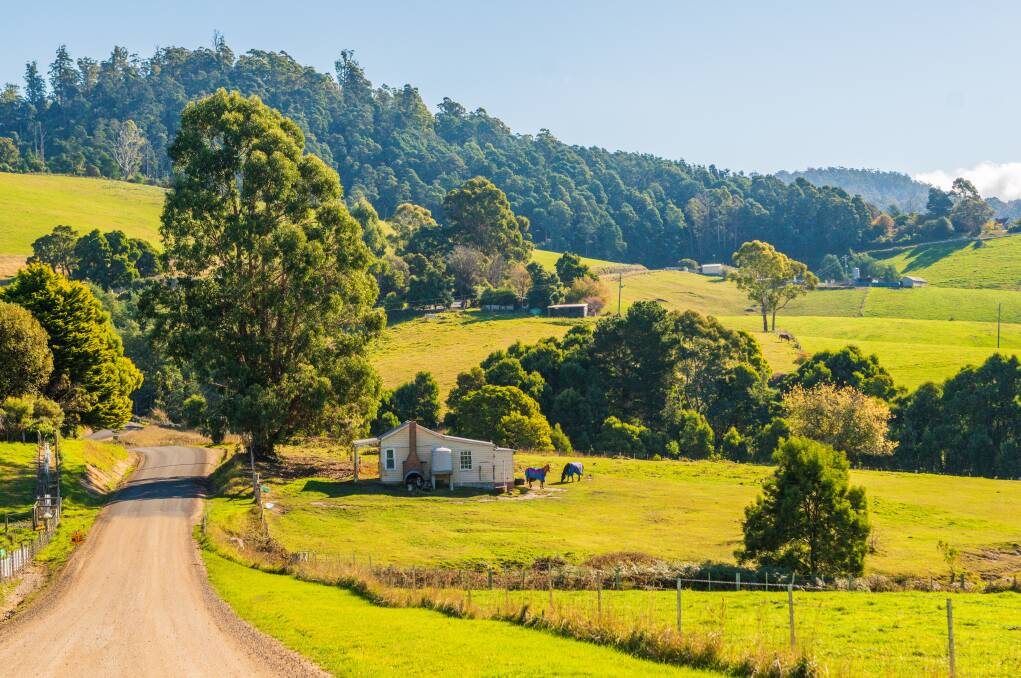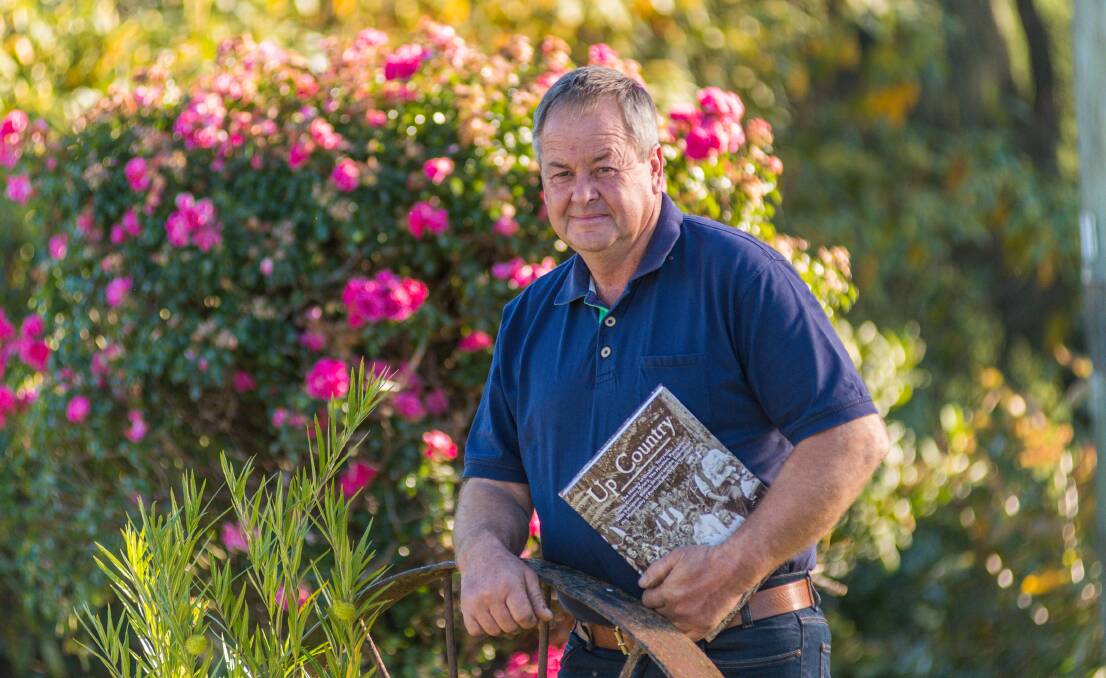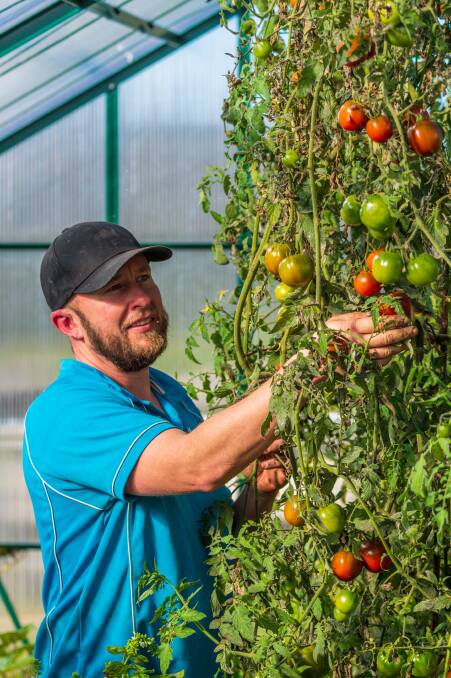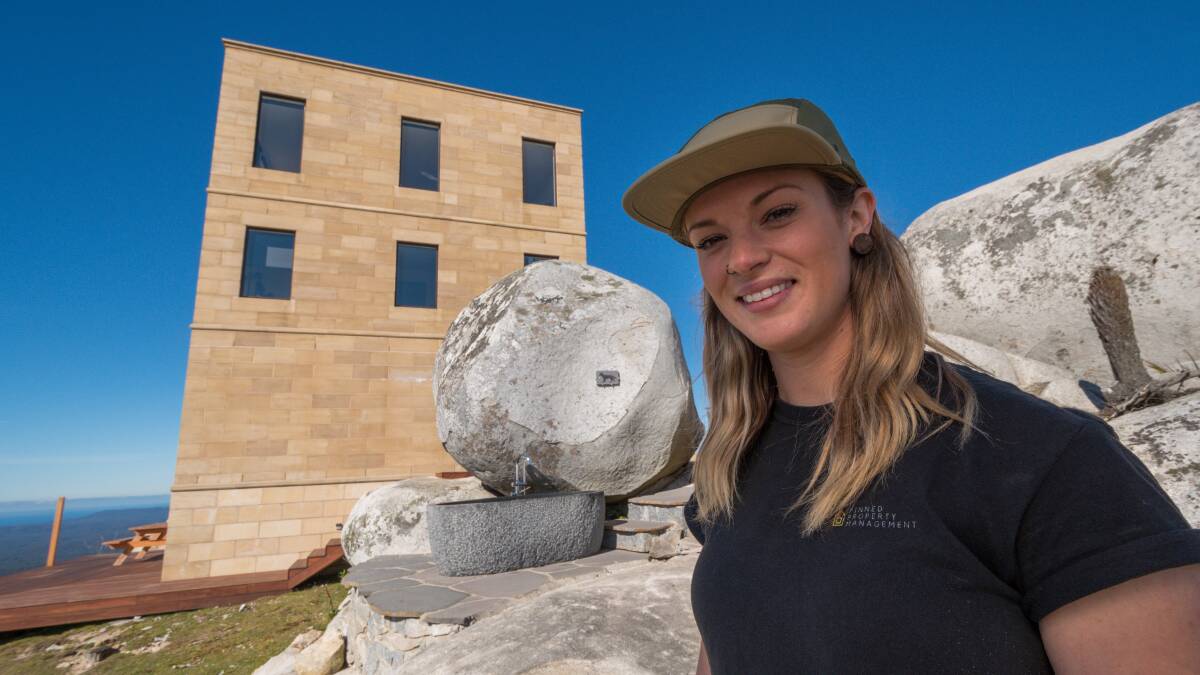
The North-East of Tasmania is well known to have once been part of a huge mining boom in Australia.
Subscribe now for unlimited access.
$0/
(min cost $0)
or signup to continue reading
Shortly after the British invasion it was quickly discovered that Ben Lomond, Blue Tier and other uncharted mountainous areas were rich in tin, gold and other precious minerals.
As mining boomed, small townships and villages sprouted up in the blink of an eye to house the miners and their families and they cut into hard rock, cleared land and slowly left their fingerprint over parts of the state.
IN CASE YOU MISSED IT: Rossarden carries a reputation it had no choice in, but the headlines are far from the truth
Goulds Country became one of those villages after tin was discovered in the region in 1875.
Fifteen years prior the area was settled by Charles Gould as he looked to lay his claim to the prosperous region.
And for the eternity before that members of the tyerrernotepanner Aboriginal language group lived among the vast sub-alpine granite plateau that has nourished life since the beginning of time.
Nowadays Goulds Country is but a blip on the map. Unless you make the conscious decision to travel there, any road sign inscribed with the town name will have it in brackets.
As if one nonchalantly bypassed the undiscovered skeleton of a Tasmanian Tiger deep within the surrounding forest, Goulds Country is a mystery to those not actively seeking it.
At the peak of its mining association about 400 people called the area home. One-hundred-and-twenty years later there are about 70 people there.
In the past 10 years, even, the number of residents has experienced a sharp downfall.
One man that has made his home among the rolling hills of the idyllic country oasis is dairy farmer Paul Rowlings.
Sixty-five-year-old Mr Rowlings was born and bred in Goulds Country. His parents were there even before that, and his mother's parents before that still.

And though his bloodline does not quite trace back to the well-known Alex Johnson who allegedly cleared much of the area for inhabitability, it is not far off.
In fact, he and his father cleared much of the land his homestead and dairy headquarters sit on now with an FJ Holden boot-load of gelignite.
Mr Rowlings talks of Goulds Country almost like a business - it is what it is, it fills a purpose for him - but his longevity in the area grants him a particular perspective.
He said around 10-years ago the land around Goulds Country was so cheap you "just about couldn't give it away", but since Blue Tier has become a mountain-biking haven, prices have sky-rocketed.
Now you wouldn't have enough money to buy into it.
- Paul Rowlings
He had also seen cleared land regenerate with flourishing wattle, a fact newer occupants of the area scarcely believe.

Like many places like Goulds Country, especially ones that have lost most of their population after mining of forestry booms, much of their history is lost with those that leave.
Occupants like Mr Rowlings own the last shreds of old-history before the present is ushered in.
As is typical of tiny country towns, neighbours are friends and a network of need.
About 300 metres from Mr Rowlings' front door is Des Gray's front door.
IN OTHER NEWS: 'The biggest tragedy': Building a life after family violence
Though they live within a few throws of a stone from each other, their stories could not be more different.
Mr Gray moved to Goulds Country about three years ago after a successful career in chemical engineering. He moved there in retirement, something he was able to achieve at 36.
The area around Mr Gray and Mr Rowlings' properties is so quiet the sounds of gravel crunching underfoot or a cricket singing are almost ear-piercing.

Mr Gray's property has a substantial greenhouse in which he grows almost all the vegetables he and his wife eat. They have recently harvested some of the largest sweet potatoes one will ever see, and they have so many chillies they offer them up freely.
There is a real serenity to Mr Gray's property and the allure of being able to retire to a place like Goulds Country at the ripe-age of 36 is apparent.
"The job I was in was the kind where you've got your phone on 365 days a year, even if you're overseas you need to take calls and you don't sleep sometimes. It's not good for your stress levels and your health, so I just tried to get out as quickly as I could," Mr Gray said.
Now his most critical task is choosing to harvest his eggplants on Thursday, Friday or sometime next week, or whether he will spend the day with his wife or pop up the hill to neighbour's house for a chat.
From his backyard Mr Gray can point to at least four different residences scattered among the hills and explain who lives there and what their background is.

"You know all your neighbours here, which is nice. And they also do things for you you'd never expect out of your neighbours," he said.
There's no phone reception here and I don't have a landline, so I just go to people's houses when I want to speak to them.
- Des Gray
The lifestyle of Goulds Country - of blooming flowers, rich soil, neighbours you can call out to, serenity and seclusion - has allowed Mr Rowlings and Mr Gray to make what they want of their livelihood without the expectations of the ever-vaunted and always grappling rat-race.
And while Goulds Country is almost off-limits because of its seclusion, about 30 minutes' drive from the valley in which Mr Rowlings and Mr Gray have made their home is an attainable hideaway at which anyone can adopt the remoteness on offer in the Blue Tier oasis.
Tucked into the granite and myrtles of Goulds Country, sitting above the clouds atop a peak in Blue Tier where Wedge-Tailed Eagles play, is The Keep - an imposing sandstone structure resembling one tower of a square stone castle.
What was once the brainchild of a local couple wanting to bask in views from Mt Cameron to Flinders Island to St Helens and everything in between is a bespoke slice of Tasmanian wilderness in the form of one of the most unique examples of luxury accommodation in the state.
IN CASE YOU MISSED IT: Cold but cosy: Liawenee living an insight into a time gone by
The Keep sits on 220 acres of virtually untouched forest land that has been available to visitors as short-term accommodation since June last year after being purchased by a Launceston based couple for $820,000 in July 2019.
Now, the structure commands a price tag of either $935 or $1085 a night and has an occupancy rate of more than 90 per cent.
The building is off-the-grid and features a boulder-top bathtub, custom made light-fittings, especially commissioned art and gluttonous features like the option for a private chef or massage therapist, and the ability to host weddings.
Property manager Jules Seymour drives 45 minutes from her place in Derby to look after The Keep. She said, despite seeing the property regularly, when she allows her surrounds to sink in she is still blown away by them and it is obvious why.

The Keep itself is situated at the end of a driveway akin to climbing to the peak of Ben Lomond.
The air smells fresh and crisp, and the forest is so thick either side of the track the local wombats and quolls are invisible.
With each passing minute ambling slowly to the structure at the top anticipation builds, pushed along by an expectation that what is at the top is going to be mind-blowing, and it is.
The driveway flattens out after a sinister climb to reveal what visitors routinely fork out generous sums of money to experience.
While The Keep may metaphorically be world away from Mr Rowlings dairy or Mr Gray's tree-change, its appeal is the same - silence and solitude.
Our journalists work hard to provide local, up-to-date news to the community. This is how you can continue to access our trusted content:
- Bookmark www.examiner.com.au
- Make sure you are signed up for our breaking and regular headlines newsletters
- Follow us on Twitter: @examineronline
- Follow us on Instagram: @examineronline
- Follow us on Google News: The Examiner
What do you think? Send us a letter to the editor:




